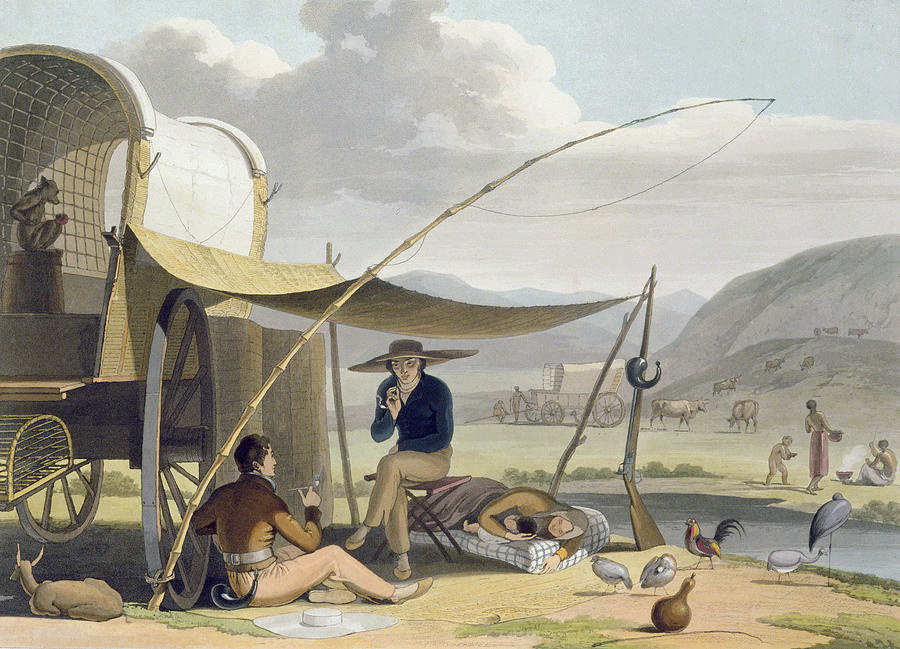
Trekboers
The Trekboers (/ˈtrɛkbuːrs/ Afrikaans: Trekboere) were nomadic pastoralists descended from European colonists on the frontiers of the Dutch Cape Colony in Southern Africa. The Trekboers began migrating into the interior from the areas surrounding what is now Cape Town, such as Paarl (settled from 1688), Stellenbosch (founded in 1679), and Franschhoek (settled from 1688), during the late 17th century and throughout the 18th century.
Not to be confused with Voortrekkers or Boers.Origins[edit]
The Trekboers were seminomadic pastoralists, subsistence farmers who began trekking both northwards and eastwards into the interior to find better pastures/farmlands for their livestock to graze, as well as to escape the autocratic rule of the Dutch East India Company (or VOC), which administered the Cape. They believed the VOC was tainted with corruption and not concerned with the interests of the free burghers, the social class of most of the Trekboers.[1]: 26
Trekboers also traded with indigenous people. This meant their herds were of hardy local stock. They formed a vital link between the pool of animals in the interior and the providers of shipping provisions at the Cape. Trekboere were nomadic, living in their wagons and rarely remaining in one location for an extended period of time. A number of Trekboers settled in the eastern Cape, where their descendants became known as Grensboere (Border Farmers).
Independent republics[edit]
Due to the collapse of the VOC (which went bankrupt in 1800) and inspired by the French Revolution (1789) and the American Revolution, groups of Boers rebelled against VOC rule. They set up independent republics in the town of Graaff-Reinet (1795), and four months later, in Swellendam (17 June 1795). A few months later, the newly established Batavian Republic nationalised the VOC (1 March 1796); the Netherlands came under the sway of the new post-revolution French government.[1]: 26
The British, who captured Cape Town in September 1795 in the course of the French Revolutionary Wars and took over the administration of Cape Colony, increased the level of government oversight the Trekboers were subject to. Tensions between the Trekboers and the British colonial administration would culminate in the Slachter's Nek Rebellion of 1815, which was rapidly suppressed and the leaders of the rebellion executed. Eventually, due to a combination of dissatisfaction with the British administration, constant frontier wars with the Xhosa to the east, and growing shortages of land, the Trekboers eventually went on the Great Trek.